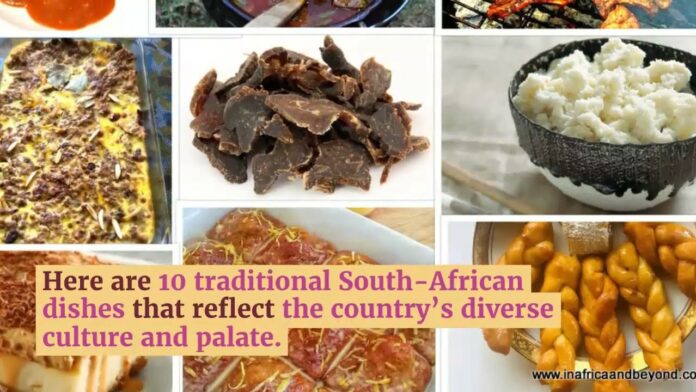Regional cuisines are a fascinating aspect of the world’s culinary heritage, offering a window into the unique cultural, historical, and environmental factors that shape local food traditions. From the rugged coastlines of the British Isles to the sun-drenched vineyards of the Mediterranean, every region has its own distinct culinary identity, reflecting the ingredients, cooking techniques, and flavors that have evolved over centuries.
History of regional food specialties
The origins of regional cuisine
The origins of regional food specialties can be traced back to the dawn of human civilization, when communities began to develop distinct culinary traditions based on the availability of local ingredients and the unique environmental conditions of their respective regions. As populations settled and agricultural practices evolved, the production and preparation of food became increasingly regionalized, with each area developing its own unique set of ingredients, cooking methods, and flavor profiles.
The role of geography and climate
Geographic location and climate have played a pivotal role in shaping regional food specialties. Coastal regions, for example, have often developed a strong emphasis on seafood-based dishes, while inland areas may have focused more on meat, grains, and produce that thrive in their particular climate. The availability of specific herbs, spices, and other ingredients has also been a major factor in the development of regional cuisines.
The influence of cultural and historical factors
In addition to geography and climate, cultural and historical factors have also played a significant role in the evolution of regional food specialties. Patterns of trade, migration, and cultural exchange have all contributed to the cross-pollination of culinary traditions, as communities have been exposed to new ingredients, cooking techniques, and flavor combinations from neighboring regions or distant lands.
Popular regional dishes

Signature dishes from around the world
Each region of the world is home to a wealth of iconic, signature dishes that have become synonymous with the local culinary culture. From the rich, hearty stews of Northern Europe to the fragrant, spice-infused curries of the Indian subcontinent, these dishes are not only delicious but also deeply rooted in the history and traditions of the communities that created them.
| Region | Signature Dish |
|---|---|
| Italy | Pasta Carbonara |
| Thailand | Tom Yum Goong |
| Mexico | Mole Poblano |
| Japan | Sushi |
| India | Butter Chicken |
The unique ingredients and preparations
The ingredients and preparation methods used in regional dishes are often deeply intertwined with the local environment and cultural traditions. For example, the use of specific herbs and spices may be closely tied to the region’s climate and agricultural practices, while traditional cooking techniques, such as wood-fired ovens or slow-simmered stews, may reflect the available resources and historical culinary practices of the local community.
- Ingredients unique to a region
- Traditional cooking methods
- The role of local food production
Cultural significance of regional food

The connection to identity and tradition
Regional food specialties are often deeply tied to the cultural identity and traditions of a particular community. The recipes, cooking methods, and even the presentation of these dishes can serve as a tangible expression of a region’s unique heritage, connecting people to their ancestral roots and the stories that have been passed down through generations.
The role of food in cultural celebration and rituals
Food also plays a central role in many cultural celebrations and rituals, serving as a vehicle for the transmission of traditions and the strengthening of community bonds. From the elaborate feasts of religious holidays to the simple sharing of a family meal, regional cuisine is often an integral part of these important cultural events.
The preservation of culinary diversity
In an increasingly globalized world, the preservation of regional food specialties has become an important means of safeguarding the rich culinary diversity that exists around the globe. By maintaining these unique culinary traditions, communities can ensure that their cultural heritage is passed on to future generations and that the world’s culinary landscape remains vibrant and multifaceted.
Impact of globalization on regional food specialties
The homogenization of food culture
One of the most significant impacts of globalization on regional food specialties has been the homogenization of food culture, as the widespread availability of mass-produced, standardized food products has threatened the survival of many traditional local dishes and preparations. This trend has been particularly pronounced in urban areas, where the convenience and familiarity of global food brands have often overshadowed the unique flavors and traditions of regional cuisine.
The commercialization of regional cuisine
At the same time, the increased global exposure of regional food specialties has also led to their commercialization, as food producers and restaurateurs seek to capitalize on the growing demand for authentic, locally-sourced culinary experiences. While this has helped to raise awareness and appreciation for regional cuisine, it has also raised concerns about the potential for cultural appropriation and the dilution of traditional recipes and preparation methods.
The role of technology and transportation
Advancements in technology and transportation have also had a significant impact on regional food specialties, making it easier to transport and distribute ingredients and finished products across vast distances. While this has increased the availability of regional dishes in global markets, it has also raised concerns about the carbon footprint and sustainability of these food systems.
Future trends in regional cuisine
The resurgence of local food movements
In response to the homogenization of food culture, there has been a growing global movement towards the revitalization of local food systems and the preservation of regional culinary traditions. This has manifested in the rise of farmer’s markets, community-supported agriculture (CSA) programs, and the widespread adoption of “farm-to-table” practices in the food service industry.
The integration of traditional and modern techniques
As regional cuisines continue to evolve, there is a growing trend towards the integration of traditional cooking methods and ingredients with modern culinary techniques and presentation styles. This has led to the emergence of a new generation of chefs and food producers who are reinventing regional specialties while still maintaining the core elements of their cultural heritage.
The increasing emphasis on sustainability and food provenance
Alongside the resurgence of local food movements, there has also been a growing emphasis on the importance of sustainable food production and the traceability of ingredients. This has led to a greater appreciation for the role that regional food specialties play in supporting local economies, preserving traditional farming and fishing practices, and reducing the environmental impact of the global food system.
Conclusion
Regional food specialties are a testament to the incredible diversity and richness of the world’s culinary heritage. From the hearty, comforting dishes of the Nordic countries to the vibrant, flavor-packed cuisines of Southeast Asia, these local culinary traditions offer a window into the unique histories, cultures, and environmental factors that have shaped the way communities around the world produce, prepare, and consume their food.
As the world continues to grapple with the challenges of globalization and the homogenization of food culture, the preservation and revitalization of regional cuisine has become an increasingly important priority. By celebrating the unique flavors, ingredients, and preparation methods that define these local culinary traditions, we can not only preserve the rich diversity of the world’s food heritage but also foster a deeper appreciation for the connections between food, culture, and the natural environment.
Whether you’re a seasoned traveler exploring the local food markets of a distant land or a home cook seeking to bring the flavors of a particular region to your own kitchen, the exploration of regional food specialties offers a profound and enriching culinary experience. So, let us raise a fork to the enduring legacy of regional cuisine and the countless stories it has to tell about the human experience.









